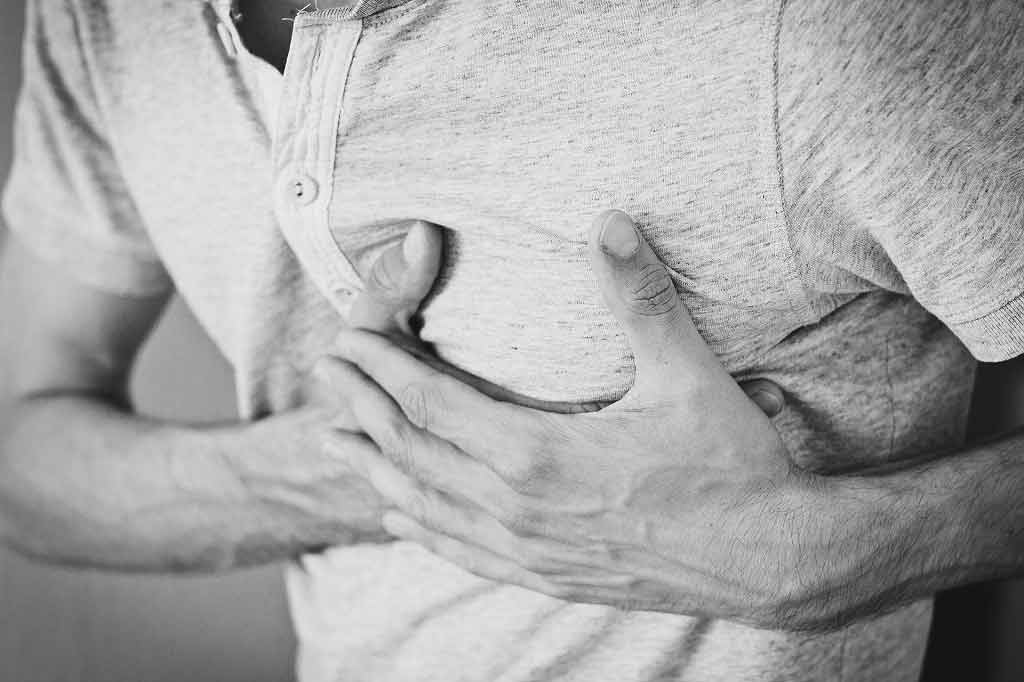Heart attacks 'worse in the morning'

“Heart attacks are far more dangerous in the mornings than at any other time of the day,” reported the Daily Mail. It said that patients who had an attack between 6am and midday suffered a fifth more damage...
“Heart attacks are far more dangerous in the mornings than at any other time of the day,” reported the Daily Mail . It said that patients who had an attack between 6am and midday suffered a fifth more damage to their heart muscle compared with those who had a heart attack later on.
The story comes from a study of more than 800 heart attack patients, examining the possible association between the time of day that heart attacks happen and the levels of two enzymes in the blood. These enzymes are markers of damage to the heart tissue, and higher levels indicate larger areas of damage.
Patients who had a heart attack between 6am and noon were found to have higher blood levels of these enzymes than those who had heart attacks later in the day, with increases in peak levels of 18.3% and 24.6%. The researchers suggest that these patients had significantly larger heart attacks than those whose heart attacks occurred at other times of the day.
The study was well-conducted and its findings add to what is known about circadian rhythms (the body’s internal 24-hour cycle) and heart risk. The study has several factors that limit its interpretation, however, including the use of a surrogate marker for damage to the heart (enzyme levels), rather than looking at heart damage directly. There may also have been other factors affecting how much damage took place, for example, how quickly people received treatment due to the time of day of their attack.
Where did the story come from?
The study was carried out by researchers from the Hospital Clinico San Carlos and the Centro Nacional de Investigaciones Cardiovasculares Carlos III (CNIC), both in Madrid, Spain. There is no report of external funding.
Coverage in the media was generally accurate, although there was little reporting of the study’s limitations. Reports that patients who have heart attacks between 6am and noon suffer one-fifth more damage to their heart muscle comes from an estimate by the researchers, rather than directly from the study results.
What kind of research was this?
The aim of this study was to investigate whether the time of day affected the severity of damage caused by a type of heart attack called ST segment elevation myocardial infarction (STEMI). This was a retrospective cross-sectional analysis of 811 STEMI patients admitted to hospital between 2003 and 2009. This type of heart attack is caused by a prolonged blockage of blood supply to the coronary artery and usually causes large areas of damage to the heart muscle.
The researchers point out that the circadian clock (the body’s internal 24-hour cycle) is known to influence a number of cardiovascular factors, including blood pressure and heart rate, and that heart attacks peak in incidence during the early morning hours. As yet, little research has been carried out in patients to look at whether the degree of damage caused by a heart attack is affected by the time of day it occurs.
What did the research involve?
Researchers looked at the data on 811 patients who were admitted to hospital between 2003 and 2009 with a STEMI, as defined in current clinical practice guidelines. They obtained information on the time of onset of symptoms from patients’ medical histories, the site of the STEMI (divided into those in the heart’s anterior wall and other locations) and the levels of creatine kinase (CK) and troponin I (TnI), measured on admission and then every four hours. These two enzymes are chemical markers for damage to the heart tissue (infarct) and higher levels of enzymes indicate greater damage.
The researchers divided the 24-hour clock into four equal periods, in phase with circadian rhythms. These were midnight to 6am, 6am to noon (dark-to-light transition), noon to 6pm and 6pm to midnight. The time of day that patients had a heart attack was categorised into one of these four periods. Standard statistical methods were used to assess whether there was a relationship between peak enzyme levels in the blood and the time heart attacks occurred. The results were also adjusted for other factors that could affect the size of someone’s heart attack, such as the presence of diabetes, history of hypertension and the time of year it happened.
What were the basic results?
The researchers say they found a “circadian variation” in the extent of the damage to heart tissue, as measured by peak levels of the two enzymes, CK and TnI.
- They report that the “curves” of both CK and TnI showed similar patterns across time, with a maximum in patients who had heart attacks in the 6am to noon period and a minimum in patients who had heart attacks in the noon to 6pm period.
- The amount of damage to heart tissue (the infarct), as measured by CK and Tnl levels, was largest in patients who had a heart attack between 6am and noon. These people had CK concentrations in their blood that were 18.3% higher than those who had attacks between 6pm and midnight, and Tnl readings that were 24.6% higher for the same period.
- Patients with anterior wall STEMI had significantly more damage than those with STEMI in other parts of the heart.
In their conclusion, the researchers say that, overall, there is an expected increase of about 20% in the size of infarct in patients with STEMI during the dark-to-light transition period, compared with any other time of day.
How did the researchers interpret the results?
The researchers say that the amount of damage caused by heart attacks, as measured by their enzyme levels, was significantly larger in patients who had a heart attack between 6am and noon, than at other times of the day.
They say that, although the reason is not fully understood, it may be due to natural changes in the body during the 24-hour period, so that at certain times there is less “cardioprotection”. For example, circadian variations in heart rate, blood pressure and coronary flow may all be involved.
Conclusion
This study was well-conducted and its findings add to what is known about circadian rhythms and heart risk. As the researchers themselves point out, it also has several limitations.
- The analysis was retrospective, meaning that it used data from patients who had had heart attacks in the past. Retrospective studies are considered less reliable than those that follow people over time.
- The researchers used a surrogate marker of heart damage (enzyme levels), rather than looking at damage to the heart directly, for example by using MRI scans.
- The results may have been affected by “survivor bias”, as it is known that the incidence of irregular heartbeats and sudden death are higher in the early morning hours, so by only analysing those who were alive, the researchers may have missed from their analysis some of the largest heart attacks, i.e. those that led to death.
- Although the researchers tried to adjust their findings for possible confounders it is still possible that factors other than the time of day or night they occurred influenced the size of people’s heart attacks. It is also possible that some people got to the hospital and were treated more quickly than others due to the time of day, which would have had an influence on the results.
As experts are reported as saying, whatever time of day a heart attack happens, the more quickly someone is treated, the less damage to the heart they will have. Anyone who experiences heart attack symptoms or observes them in someone else should call 999 immediately.







 Subscribe
Subscribe Ask the doctor
Ask the doctor Rate this article
Rate this article Find products
Find products